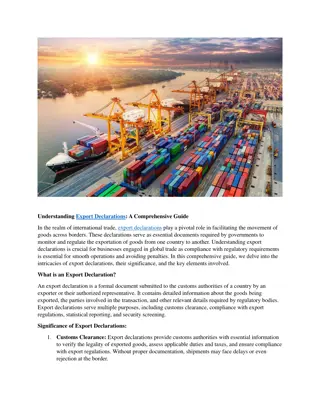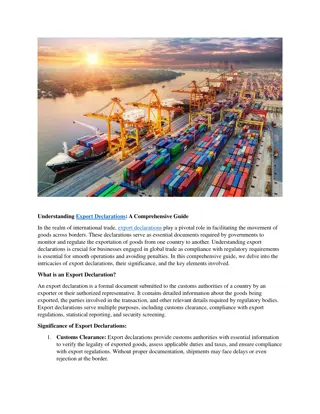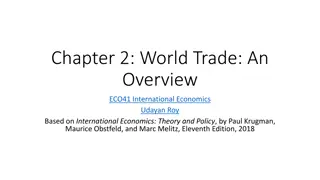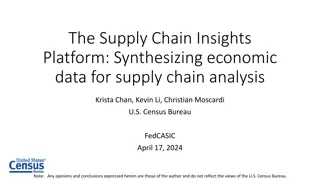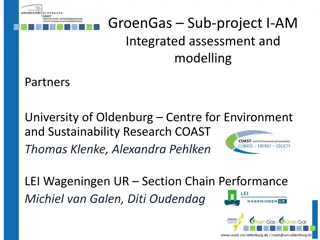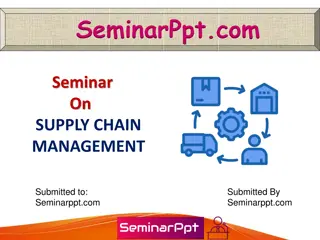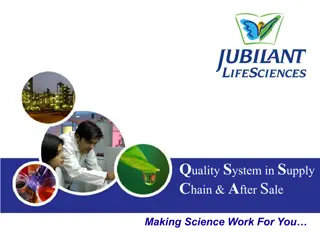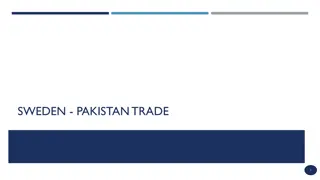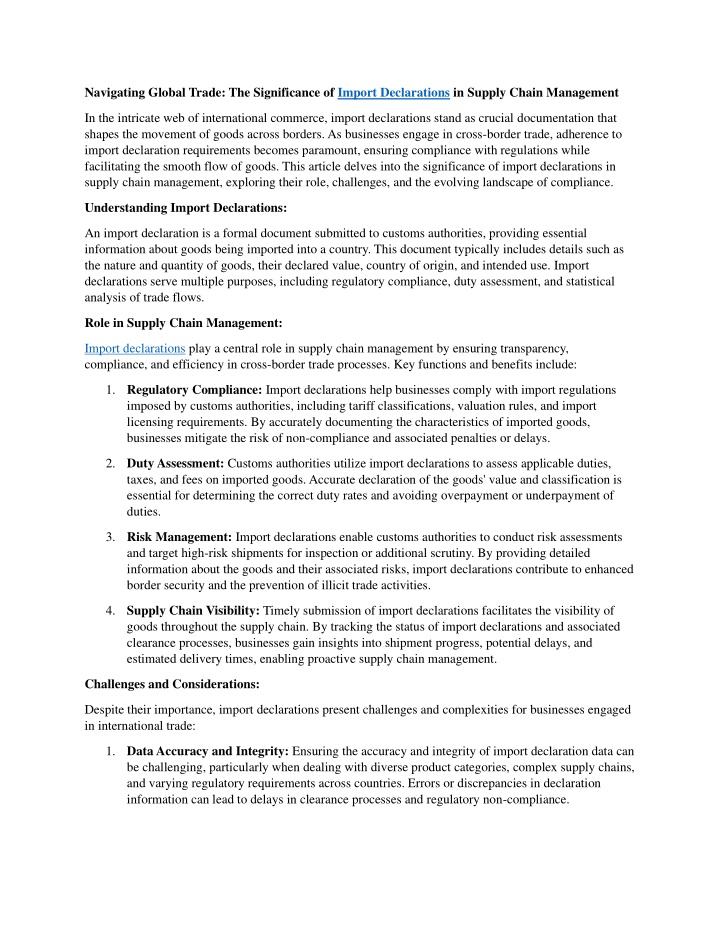
Navigating Global Trade: The Significance of Import Declarations in Supply Chain
In the intricate web of international commerce, import declarations stand as crucial documentation that shapes the movement of goods across borders. As businesses engage in cross-border trade, adherence to import declaration requirements becomes paramount, ensuring compliance with regulations while facilitating the smooth flow of goods. This article delves into the significance of import declarations in supply chain management, exploring their role, challenges, and the evolving landscape of compliance.
Download Presentation

Please find below an Image/Link to download the presentation.
The content on the website is provided AS IS for your information and personal use only. It may not be sold, licensed, or shared on other websites without obtaining consent from the author. If you encounter any issues during the download, it is possible that the publisher has removed the file from their server.
You are allowed to download the files provided on this website for personal or commercial use, subject to the condition that they are used lawfully. All files are the property of their respective owners.
The content on the website is provided AS IS for your information and personal use only. It may not be sold, licensed, or shared on other websites without obtaining consent from the author.
E N D
Presentation Transcript
Navigating Global Trade: The Significance of Import Declarations in Supply Chain Management In the intricate web of international commerce, import declarations stand as crucial documentation that shapes the movement of goods across borders. As businesses engage in cross-border trade, adherence to import declaration requirements becomes paramount, ensuring compliance with regulations while facilitating the smooth flow of goods. This article delves into the significance of import declarations in supply chain management, exploring their role, challenges, and the evolving landscape of compliance. Understanding Import Declarations: An import declaration is a formal document submitted to customs authorities, providing essential information about goods being imported into a country. This document typically includes details such as the nature and quantity of goods, their declared value, country of origin, and intended use. Import declarations serve multiple purposes, including regulatory compliance, duty assessment, and statistical analysis of trade flows. Role in Supply Chain Management: Import declarations play a central role in supply chain management by ensuring transparency, compliance, and efficiency in cross-border trade processes. Key functions and benefits include: 1.Regulatory Compliance: Import declarations help businesses comply with import regulations imposed by customs authorities, including tariff classifications, valuation rules, and import licensing requirements. By accurately documenting the characteristics of imported goods, businesses mitigate the risk of non-compliance and associated penalties or delays. 2.Duty Assessment: Customs authorities utilize import declarations to assess applicable duties, taxes, and fees on imported goods. Accurate declaration of the goods' value and classification is essential for determining the correct duty rates and avoiding overpayment or underpayment of duties. 3.Risk Management: Import declarations enable customs authorities to conduct risk assessments and target high-risk shipments for inspection or additional scrutiny. By providing detailed information about the goods and their associated risks, import declarations contribute to enhanced border security and the prevention of illicit trade activities. 4.Supply Chain Visibility: Timely submission of import declarations facilitates the visibility of goods throughout the supply chain. By tracking the status of import declarations and associated clearance processes, businesses gain insights into shipment progress, potential delays, and estimated delivery times, enabling proactive supply chain management. Challenges and Considerations: Despite their importance, import declarations present challenges and complexities for businesses engaged in international trade: 1.Data Accuracy and Integrity: Ensuring the accuracy and integrity of import declaration data can be challenging, particularly when dealing with diverse product categories, complex supply chains, and varying regulatory requirements across countries. Errors or discrepancies in declaration information can lead to delays in clearance processes and regulatory non-compliance.
2.Regulatory Changes: The regulatory landscape governing import declarations is dynamic, with frequent updates and changes in import regulations, tariff schedules, and trade agreements. Staying abreast of these regulatory changes and adapting import declaration processes accordingly is essential for maintaining compliance and minimizing disruptions to supply chain operations. 3.Customs Automation and Integration: Many countries are transitioning to electronic customs systems and automated clearance procedures, necessitating the adoption of digital solutions for import declaration submission and processing. Businesses must invest in compatible technology platforms and ensure seamless integration with customs authorities' electronic systems to facilitate efficient clearance processes. The Future of Import Declarations: As global trade continues to evolve, the future of import declarations lies in digitalization, automation, and collaboration among stakeholders. Emerging technologies such as artificial intelligence, blockchain, and data analytics hold the potential to revolutionize import declaration processes by enhancing data accuracy, streamlining clearance procedures, and enabling real-time risk assessment. There are many import declarations services providers in the market but Customs Declarations UK is of the trusted and reliable one with good reviews. Furthermore, increased cooperation and information sharing among customs authorities, businesses, and technology providers can foster interoperability and standardization of import declaration processes on a global scale. By leveraging shared platforms and data exchange mechanisms, stakeholders can achieve greater efficiency, transparency, and compliance in cross-border trade operations. Conclusion: In conclusion, import declarations play a vital role in facilitating international trade and supply chain management. By providing accurate and comprehensive information about imported goods, import declarations enable regulatory compliance, duty assessment, and risk management in cross-border transactions. As businesses navigate the complexities of global trade, embracing digitalization, staying informed about regulatory changes, and fostering collaboration with customs authorities are essential strategies for optimizing import declaration processes and ensuring seamless supply chain operations. Author Profile: (David Hawk) David Hawk is an Expert in Customs Declarations Services having 7+ years of experience in this industry.



